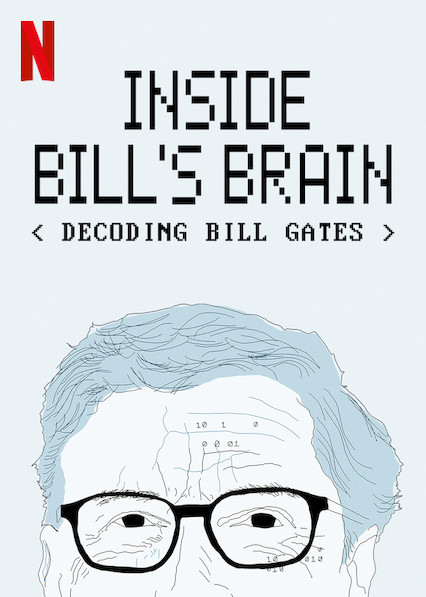Inside Bill’s Brain: A Hagiography?
I recently watched Inside Bill’s Brain: Decoding Bill Gates, a 2019 Netflix release. Critics panned it as a hagiography. Some knocked director Davis Guggenheim for not pressing Gates “toward true openness or self-examination.”
Initially, I gave Oscar-winning Guggenheim (An Inconvenient Truth) the benefit of the doubt for his fast-fire questions that yielded one-word answers. We learn that some of Gates’s favorite things are “dogs”, “hamburgers,” and “coffee”.
Maybe the famous director was just warming up the former child nerd?
Ultimately, Guggenheim doesn’t ask hard questions, for example, about Microsoft being busted as a monopoly.
But he does reveal what social entrepreneurship could look like in the hands of a brilliant billionaire who partners with his warm, techie wife to eradicate polio and diarrhea.
Critics like Daniel D’Addario at Variety veer into cynicism when making statements like this:
“A certain type of documentary has grown in prevalence and popularity lately–the piece that marshals evidence in service of the case that a very widely known contemporary figure is actually even greater than one had previously thought.”
Uplifting biographies have ruled in the last few years, perhaps in reaction to what director Joe Berlinger (Crude, Paradise Lost) calls “take down” documentaries.
Examples include Berlinger’s Tony Robbins: I Am Not Your Guru, RGB, A Beautiful Day in the Neighborhood, and even my own biography American Visionary: The Story of Barbara Marx Hubbard.
After it opened at Telluride, the Gates biography got this review from The Hollywood Reporter, “We come away from Inside Bill’s Brain admiring his efforts as well as his intelligence, and appreciating the humanity that some of Gates’ enemies have blithely ignored.”
Check it out, along with Melinda Gates’ book (also released last year) “The Moment of Life: How Empowering Women Changes the World”.
Both helped me understand the power of focused philanthropy.
